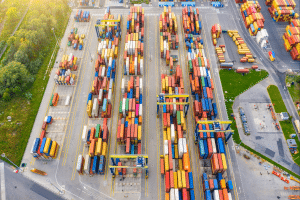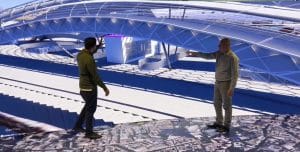As new technologies such as artificial intelligence, machine learning, augmented reality, and so on are emerging day by day, the field of geospatial is not left untouched. GeoAI or Geospatial Artificial Intelligence has recently gotten a lot of interest. GeoAI is the merger of artificial intelligence and Geographic Information Systems (GIS). It is an evolving field that uses AI methods such as machine learning (ML) and deep learning (DL) to produce information through the analysis of spatial data and imagery.
Applications of GeoAI
Geospatial data are vast spreading in many domains such as transportation, smart cities, public health, natural disasters, public safety and climate change, etc. To deal with this data in each domain geospatial experts are using AI to make data processing easier. Here we are going to discuss some applications of GeoAI in different areas:
Transportation
One of the very dynamic areas is transportation where the movement of vehicles can be changed within seconds. With GeoAI, it would help to identify traffic on roads, shipment tracking, avoid obstacles, do heavy vehicle routing, and map supply chain movement too. Moreover, we are moving towards the future of autonomous vehicles where GeoAI will be a big help to monitor and analyse the data such as collision-risk prediction and traffic monitoring from video analytics.
Smart Cities
GeoAI has a great role to play in the planning of smart cities. Smart cities are built by the integration of physical and digital layers of infrastructure. The digital layer of infrastructure is supported by information and communication technologies. These technologies rely on structured and unstructured data generated from earth observation (EO), wireless sensors and internet and communication technologies and so on. GeoAI, with the help of ML and DL, will contribute to making the production of spatial data and information on human-urban dynamics easier. It will be going to help in making a better living for all urban citizens, enhance the efficiency of urban services and functions and to address the pressing societal, ecological and economic challenges.
Defence
In the defence sector, GIS data is used on the ground to receive orders and to provide a map of the battlefield. GeoAI will analyse the map data and will help to provide the safest route to avoid enemy exposure. AI will analyse the variables and provide automatic geographic results that can ultimately help to save lives.
Healthcare
GeoAI plays a significant role in the healthcare sector as the location is part of both population and individual health. Health is affected by natural environment, built environments, social determinants and climate. GeoAI has two major applications in healthcare; one is public health and second is precision medicine. Public health deals with large scale, concerning groups of people, environmental factors, and genetics that influence them. Precision medicine deals with prevention and treatment strategies by considering individual variability in genetics, environment, and lifestyle. By monitoring human behaviour and spatial distribution GeoAI will help in forecasting the effects of diseases.
Business Marketing
In marketing, with the help of GeoAI, businesses can track consumer behaviours and analyse their demands to get the highest profits. Important insights can also be taken by linking businesses with geospatial data. GeoAI will also assist in inventory management by tracking the warehouses like which store is out of product on which location. By analysing consumers’ behaviour, businesses can identify where they need to pull the product.








